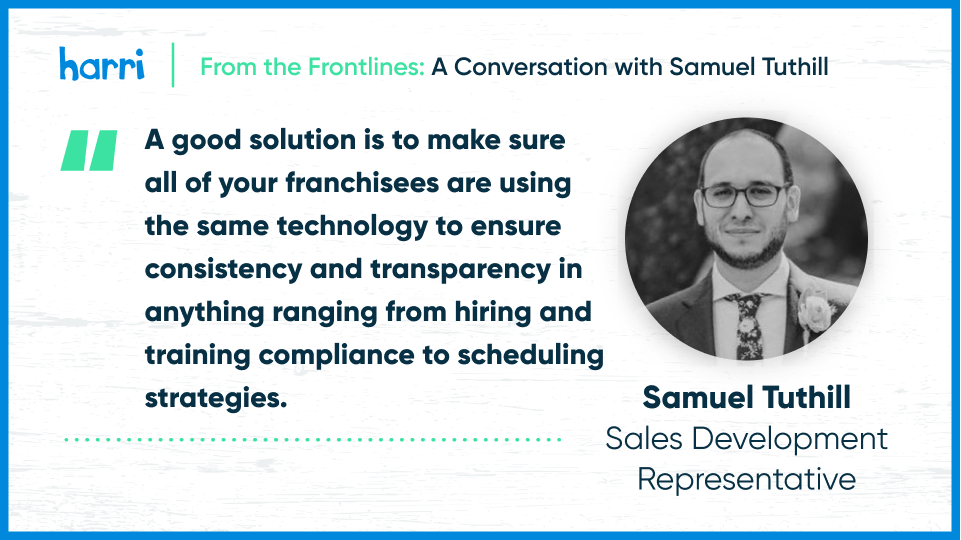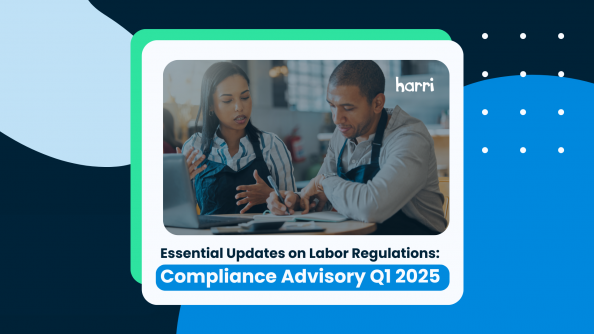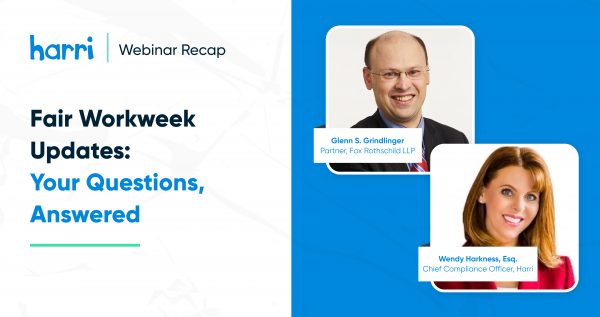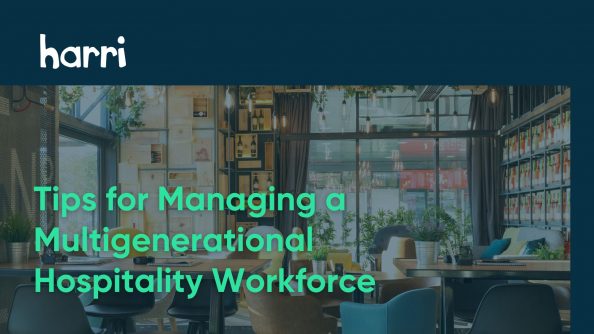From the Frontlines: A Conversation with Sam Tuthill on Joint Employer

- By Harri Insider Team | August 12, 2021
Welcome back to another episode of From the Frontlines! In this series, we highlight members of Team Harri who have thought-provoking insights into the latest hospitality trends. This week we met with Sam Tuthill, Sales Development Representative at Harri, to discuss hospitality’s everchanging Joint employer laws and how to prepare for compliance.
Welcome back Sam! Joint Employer law is on the table once again. Can you summarize changes coming to the legislation for us?
Absolutely. Joint employer impacts the franchisor to franchisee relationship. In the past under the Trump administration, they were easily separated. Say an individual franchisee violated child labor laws. In most cases, the franchisor as a whole would not be held liable for any non-compliance. The franchisee would.
However, this will change on September 28, 2021.
Under the new Joint employer law, an entire franchise brand will be held responsible if an individual franchisee violates a labor law. Corporate will need to pay legal fees and compensations for a mistake that a franchisee made.
At Harri, we like to use Fair Workweek as an example. If you have one franchise location in a Fair Workweek jurisdiction, like Chicago or NYC, your brand will be liable for any violations even if you’re not based in a Fair Workweek jurisdiction.
That’s a massive change. What can operators do to minimize disruption?
Operators need to make sure their entire business is ready to comply with any and all labor laws. A good solution here is to make sure all of your franchisees are using the same technology to ensure consistency and transparency in anything ranging from hiring and training compliance to scheduling strategies.
Fair Workweek fines are no joke. I’d recommend brands to take a step back, see where operational processes are open to liability, and take time to ensure they’re air-tight.
It all sounds like a massive pivot for restaurant operators. Are there any silver linings that come from Joint Employment changes?
There certainly are. For one, this represents a strong opportunity for franchisors to build a better relationship with their franchisees. That naturally lends itself to less operational friction and better business-wide transparency. These laws also give franchises more control to ensure a higher standard of quality across the brand.
Any final thoughts?
It’s not too late to start preparing for these laws. Even though they go into effect September 28, they probably won’t be enforced until sometime after that.
Although Joint Employer requirements have gone back and forth for years, it’s unwise to assume they won’t affect your brand at some point in the future. Compliance with labor laws tends to lead to long-term profits and higher retention rates, so there are clear benefits to start prepping your teams.




















